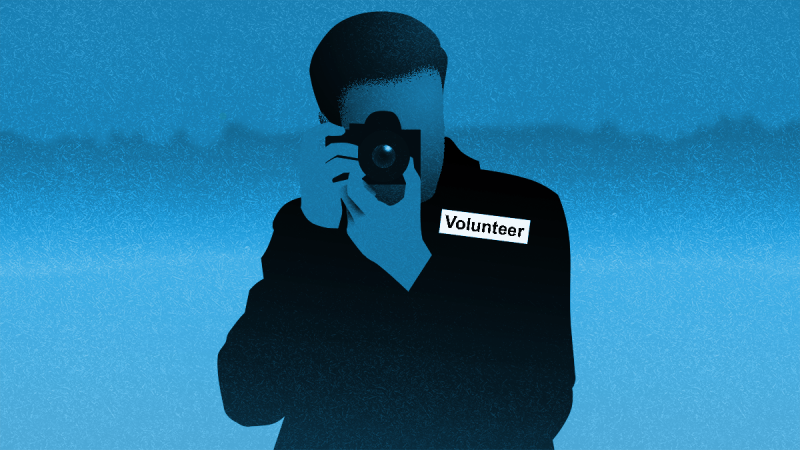Copyright Dilemmas: Volunteers and Unpaid Interns

Ministries desire healthy relationships with volunteers and unpaid interns. A possible area where these relationships can break down is over intellectual property. Many things can qualify as intellectual property, including a process for evaluating claims, a secret formula, a statue commissioned by a non-profit, or even a novel. Here, we’ll focus on copyrights.
A copyright is an exclusive right to an original expression, which automatically vests as soon as that expression is “fixed” in a tangible medium, such as on a piece of paper or a canvas. However, who that right vests in can be a complicated question, especially in employment or volunteer contexts.
Let’s say George is an amateur photographer and has decided to volunteer with a non-profit entity that we’ll call Shelter Federation, which provides shelter and monthly stipends for victims of domestic abuse. Shelter Federation asks George to bring his camera to an event and take photographs of the activities. George agrees. George takes the photos and hands them over to Shelter Federation, who then includes the photos in a fundraising booklet. The booklet really takes off, and people are buying them both to support the cause and because the photos are very well done. Three weeks later, George and Shelter Federation have a dispute over how the photos are arranged. George demands that the photos be removed from the booklet, and Shelter Federation refuses. George leaves Shelter Federation and files a lawsuit in federal court claiming that the photos belong to him—because he took them—and that Shelter Federation’s use of the photos constitutes copyright infringement. On the other side, Shelter Federation claims that George participated in the event and took the photos on Shelter Federation’s behalf as an “official volunteer.” Thus, the photographs are “works made for hire,” and belong to Shelter Federation.
Here's the snag: The work-for-hire doctrine applies only to works produced by employees or, if a written contract exists, independent contractors. An unpaid volunteer for a nonprofit organization—or ministry—is neither. George was never on payroll, he brought his own tools (the camera) and made independent decisions about what shots to take and when. Thus, if the case were to go before a judge, George would likely win, and Shelter Federation could be on the hook for money damages for the infringing use.1
The above scenario could play out in several different ways, with several different types of copyrightable material being at issue—books, sculptures, scripts, etc. It could also happen with an unpaid intern as opposed to a volunteer.
A ministry or non-profit organization can bring clarity and protect itself by following certain best practices, such as drafting an intern/volunteer contract that includes an overview of the responsibilities and expectations as well as a provision assigning intellectual property rights (or at least an irrevocable license) for material created “on the job” to the ministry/non-profit. You may also need to consult an attorney regarding your particular situation before implementing any changes to your program to be sure your ministry or non-profit is compliant with state-specific standards.
_________________________________________
1 As was the case in Hubay v. Mendez, 2020 WL 6694406 (W.D. Pa. 2020) where a volunteer photographer won an injunction and monetary damages against the non-profit that requested the photos.
Featured Image by Rebecca Sidebotham.
Because of the generality of the information on this site, it may not apply to a given place, time, or set of facts. It is not intended to be legal advice, and should not be acted upon without specific legal advice based on particular situations
